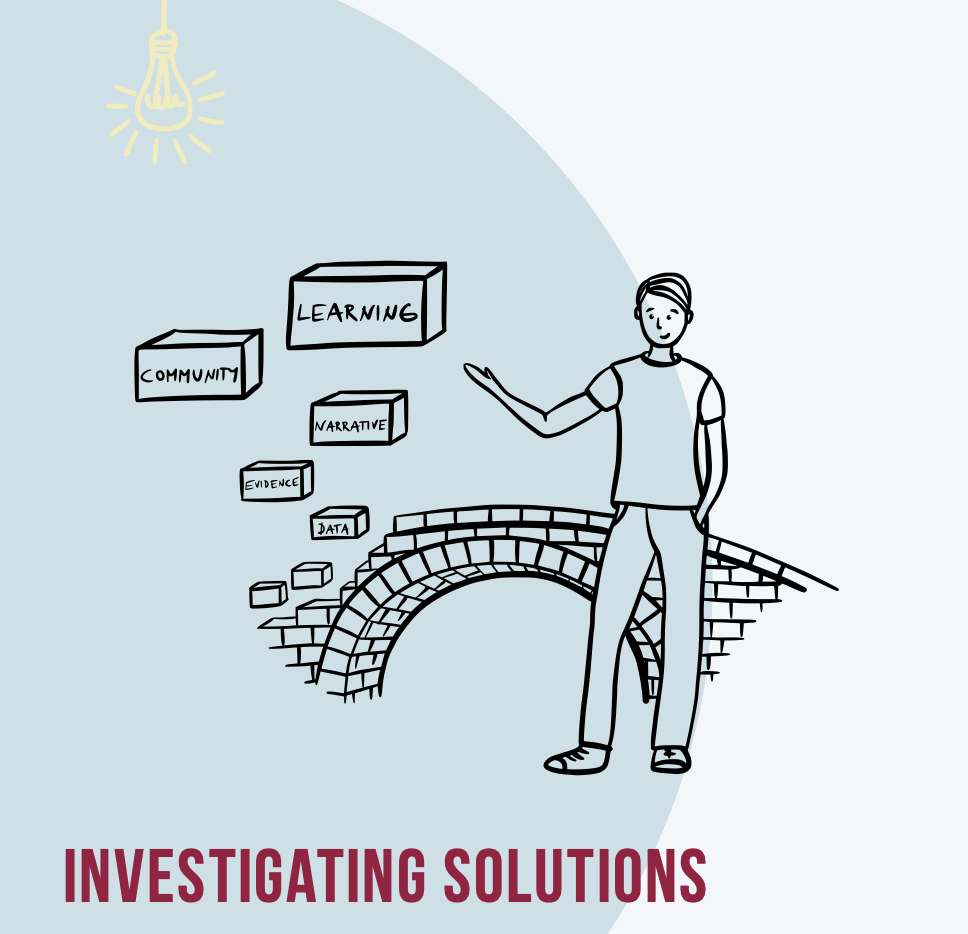
The SoJo Europe Program is proud to launch a set of practical, journalist-tested resources designed to help reporters integrate solutions journalism into their investigations. These guides have been created with insights from journalists and mentors part of the program and they offer actionable methods and frameworks for elevating reporting with deeper evidence, stronger storytelling, and a sharper understanding of what really works.
Use them to strengthen your investigations, centre communities in your reporting, and report on solutions with clarity and rigor.
📘 1. Investigating Solutions: Integrating Solutions Journalism into Investigative Reporting
Want to bring investigative rigor into your solutions stories?
This guide shows journalists how to examine responses with the same critical lens traditionally applied to uncovering problems. It breaks down mindsets, methods, and practical steps for scrutinising solutions by avoiding “hero stories,” spotting data anomalies, evaluating context, and grounding reporting in lived realities. This is an essential toolkit for anyone who wants to strengthen investigations while revealing what truly works (and why).
📗 2. Solutions Guidebook for Reporting Lived Experience
How do you capture lived experience with depth, accuracy, and care?
This guide explores how personal narratives can strengthen evidence-based solutions reporting without stereotyping, oversimplifying, or losing critical rigor. It offers concrete strategies for interviewing people responsibly, and integrating qualitative insights into investigations. The guide helps journalists ground their stories in the realities communities face, and in the knowledge they carry about both problems and solutions.
📙 3. What Didn’t Work — and Why It Matters: Reporting Instructive Failures
Failures can be just as revealing as success stories and this guide shows how to report them.
It unpacks the concept of instructive failure in solutions journalism: investigating why an attempted response didn’t deliver, what assumptions were wrong, and what lessons emerged. Instead of blame, the focus is on insight, learning, and understanding complexity. This guide helps journalists use setbacks to illuminate smarter paths forward and make failure a powerful lesson learnt as part of solutions reporting.
Explore the Resources in More Languages
To make these resources accessible to a wider community of European journalists, we have also produced translations beyond English. All handbooks and guides are now available in German as well as in a neutral Bosnian–Croatian–Serbian written standard, ensuring usability across newsrooms in the Western Balkans. You can access the translated versions below.
German translations:
Handbook 1: Lösungen recherchieren: Lösungsorientierten Journalismus in investigative Recherchen einbinden
Handbook 2: Leitfaden für lösungsorientierte Berichterstattung über gelebte Erfahrungen: Lösungsorientierte Recherchen mit menschlichen Geschichten vertiefen
Bosnian/Croatian/Serbian translations:
Handbook 1: Istraživanje rješenja: Integracija novinarstva usmjerenog na rješenja u istraživačko novinarstvo
Handbook 3: Šta nije djelovalo – i zašto je to važno: Vodič za novinarstvo usmjereno na rješenja za pretvaranje poučnih neuspjeha u važne priče
